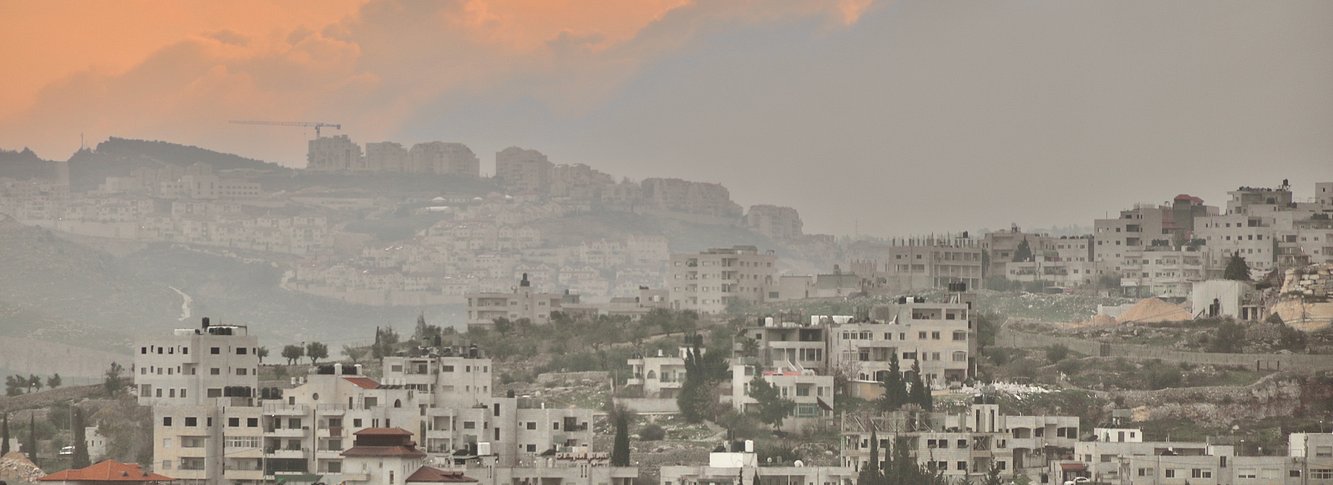| 6 mins read
We have written collaboratively as political scientists with roots in the Palestinian (Abu-Laban) and Jewish (Bakan) experiences to challenge dominant framings of politics in Israel/Palestine. There has been growing attention to racism internationally – especially since the murder of George Floyd by Minneapolis police in the US, as well as the obviously racialized health inequities stemming from COVID-19. However, regarding Israel/Palestine, scant attention has considered the multiple and interacting forms of racism.
Whether living in or outside historic Palestine as refugees, under Israeli occupation, or as second-class citizens in Israel, Palestinians are effectively the ‘non-white’ victims of repression of the settler-colonial project of Israel. Therefore, there are specific elements of an identifiable anti-Palestinian racism that need to be named and explained. As an Arab grouping comprised of both Christians and Muslims, Palestinians are subjected to what Edward Said termed Orientalism, as well as anti-Muslim racism (also called Islamophobia).
Anti-Palestinian racism as a specific form of racism, however, demands more focused attention. It operates at both the local and global levels, and there is, internationally, a discursive atmosphere of silencing that renders even the term contentious. To explain this, the concept of racial gaslighting as a technique that serves to pathologize the resistance of racialized minorities to oppression is critical.
The term gaslighting stems from the 1938 play “Gas Light” by British playwright Patrick Hamilton, later adapted and popularized in films. Here a man attempts to steal his wife’s fortune by isolating her and questioning her sanity by deliberate and manipulative denial of reality. Today across disciplines “racial gaslighting” has emerged as a key example of a broader pattern of what has been termed “structural gaslighting” – a form of gaslighting designed by those with power to maintain the status quo over marginalized groups through denial, masking power inequities and victim blaming.
One expression of anti-Palestinian racism illuminated through racial gaslighting is denial. The Nakba – Arabic for catastrophe – is the term used to capture the events of 1948 which led to over 750,000 Palestinians (estimated as high as 80 per cent of the population) forced to flee their homes, becoming stateless refugees (Khalidi 2020: 58). From the standpoint of serious scholarship there is little doubt what happened in 1948. The Nakba is also, however, a key site of distortion and denial, with a classic myth being that Palestinians just up and left rather than having been subjected to ethnic cleansing. Nakba denial is advanced through the Israeli state. Since 2011 this has been further amplified with coercive sanctions against any kind of Nakba commemoration.
A further expression of anti-Palestinian racism illuminated by racial gaslighting relates to the masking of power inequities. These obvious inequities are aggressively distorted by an active repositioning of the apartheid and settler-colonial character of the Israeli state as one that is “democratic,” “Jewish,” and unfairly treated.
There is now an extensive literature and a body of international law that designate Israel as an apartheid state. The term “apartheid” originated in the context of South Africa, from 1948 until the fall of apartheid in the early 1990s. An Afrikaans term literally meaning separation or ‘apartness’, it has now become accepted in international law to refer to any political regime where racialization is legally enforced to regulate unequal access to rights in government and civil society. While apartheid associated with white supremacy was formally embraced by the ruling National Party of South Africa, in Israel the term is rejected. Instead, the widely held and asserted political narrative of the Israeli state is that it is a ‘democracy’ – a designation frequently used to gaslight those who challenge Israeli apartheid.
And, finally, another form of anti-Palestinian racism is victim-blaming, with common discourses presenting Palestinians as variously “terrorist”, “antisemitic”, and “undemocratic.” Even identification of the existence of Palestine is subject to charges that dismiss and blame the victims of oppression. This is most famously seen in a June 15, 1969 interview in The Sunday Times with then Israeli Prime Minister Golda Meir, asserting that Palestinians did not exist. More recently, victim blaming took place through a 2021 Israeli state military order designating six Palestinian civil society groups to be “terrorist organizations”, effectively rendering their activities illegal. These are organizations committed to defending Palestinian human rights.
Anti-Palestinian racism is a specific form of racism. Rather than viewing the Israel/Palestine reality as a “conflict” of two equal sides, this analysis invites consideration of the relationship between race and power, attuned to antisemitism as well as other forms of racism, and how these operate at both the local and international levels. Notably, this allows us to understand how ‘whiteness’ is related to power, and not simply phenotypical or observable traits. The concept of anti-Palestinian racism draws attention to the region of Israel/Palestine, but also helps us to identify how racism operates more generally in various contexts.
Need help using Wiley? Click here for help using Wiley



